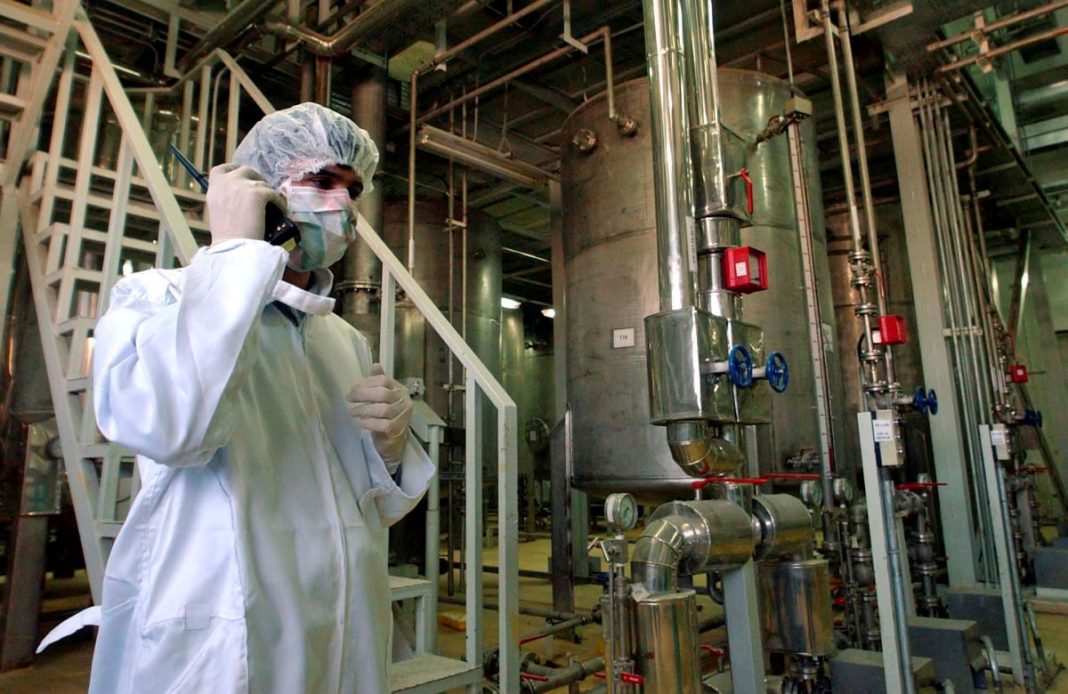“We’re going to make sure we have all options available to the president,” White House national security spokesman John Kirby told a briefing in Washington.
“We certainly have not changed our view that we will not allow Iran to achieve a nuclear weapons capability,” he added.
In a joint statement, Britain, France and Germany said Iran was moving “well beyond” limits set down in the 2015 nuclear deal, officially known as the Joint Comprehensive Plan of Action (JCPOA).
Iran has now “taken further significant steps in hollowing out the JCPOA,” the European governments announced in a joint statement.
By enriching uranium up to 60% at its Fordow plant, Iran was challenging global non-proliferation, they stated.
“This step, which carries significant proliferation-related risks, has no credible civilian justification,” the E3 countries continued.
“We will continue to consult, alongside international partners, on how best to address Iran’s continued nuclear escalation,” they noted.
Iran announced Tuesday that it had moved ahead on uranium enrichment.
The International Atomic Energy Agency (IAEA) has confirmed the action and stated Tuesday that its chief, Rafael Grossi, had reported the development to its member states.
Iran’s announcement was part of its response to the UN nuclear watchdog’s adoption last week of a censure motion drafted by Western governments accusing it of non-cooperation.
The IAEA reported in July that Iran had 43 kilograms of uranium enriched to 60% purity at other sites.
Grossi has recently told CBC the IAEA does not think it is time to admit Iran is a nuclear power, nor does it have any information indicating that Tehran was currently developing a nuclear weapon program.
When asked how close he thought Tehran was to making a nuclear bomb, Grossi said in an interview, “At the current level of production of this enriched uranium, Iran has accumulated already enough material to have more than one device, if they chose to do that.
“But we don’t have any information that would indicate that Iran has a nuclear weapon program at the moment,” the IAEA chief added.
He was also asked if we had reached the point of no return with Iran and whether it was time to admit the country a nuclear power and stated, “No, we haven’t reached that point.”
“But we need to work very hard so we don’t get there,” Grossi concluded.
In the past few years, Iran has repeated ad infinitum that its nuclear program is for purely peaceful purposes and that it has no intention of developing nuclear weapons.
Supreme Leader of the Islamic Revolution Ayatollah Sayyed Ali Khamenei has even issued a fatwa (religious decree) declaring that the acquisition, development, and use of nuclear weapons violate Islamic principles and are therefore forbidden.
Nevertheless, Iran’s nuclear capabilities have been met with US-led sanctions against the country with the intention of hampering Tehran’s technological advancements.
Iran is also a signatory to the Non-Proliferation Treaty (NPT).
